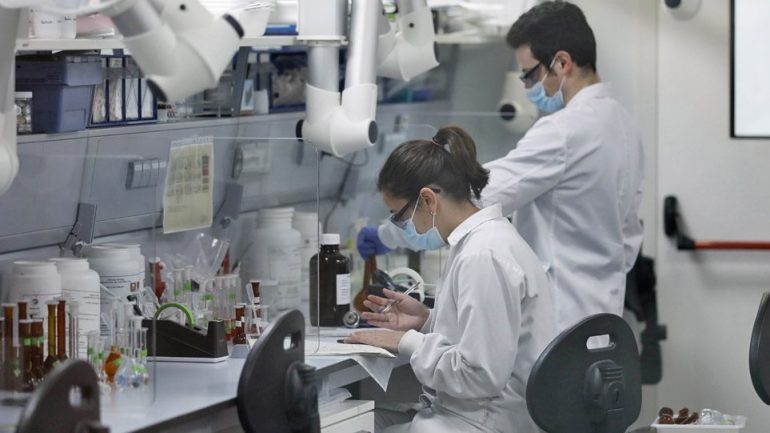The mystery surrounding the thrombosis associated with the AstraZeneca and Johnson & Johnson vaccine against coronavirus is claimed to have been solved by scientists in Germany.
According to a report in the Financial Times, Rolf Marschalek, a professor at Goethe University in Frankfurt, said his research showed that the problem was with adenovirus vectors that use both vaccines to carry the virus protein spike into the body.
J&J had already contacted Marschalek's lab for guidance and was looking for ways to tailor its vaccine, the professor said.
According to Marschalek and other scientists, some cells in the vaccine protein either fuse or separate, creating mutated versions that cannot attach to the cell membrane where the important immunization takes place. Instead, proteins are secreted by cells and diffused into the body, causing blood clots in about one in 100.000 people, according to Marschalek's theory.
The professor believes that the problem with these vaccines can be solved if the developers manage to modify the protein spike sequence to prevent it from breaking down.
What happens
The mechanism of transmission means that the vaccines send the spike protein to the cell nucleus and not to the cell fluid (cytosol) inside the cell where the virus normally produces proteins, Marsalek said, according to a pre-publication report by FT. .
Once inside the cell nucleus, parts of the spike protein break into pieces, creating variations that cannot attach to the cell membrane where the immunization process takes place.
"Once these virus genes are in the nucleus, they can cause some problems," Marsalek told the Financial Times.
The rare complication has been reported in 309 of the 33 million people who vaccinated AstraZeneca and J&J in the UK, causing 56 deaths. In Europe, at least 142 people have developed thrombosis out of the 16 million who received the AstraZeneca vaccine.
There is a solution
Marsalek believes that there is a solution to the problem if the pharmacists manage to modify the sequence of the spike protein to prevent it from breaking down.
The spike protein in the J&J vaccine was already less prone than in AstraZeneca, making side effects less common. In the United States, just eight of the 7,4 million people vaccinated with the J&J drug reported the rare side effect.
"J&J is trying to make improvements to its vaccine now," the company said in a statement.
Marsalek said he has not yet spoken to AstraZeneca. "They have never contacted us, so we have not spoken to them, but if they do, I can tell them what to do to improve their vaccine," he added.
AstraZeneca did not comment on the development. Marsalek pointed out that he has already presented their findings to the competent German authorities. "Their findings surprised them, because no one thought this could be the problem." underlined.
Source: Protothema.gr
